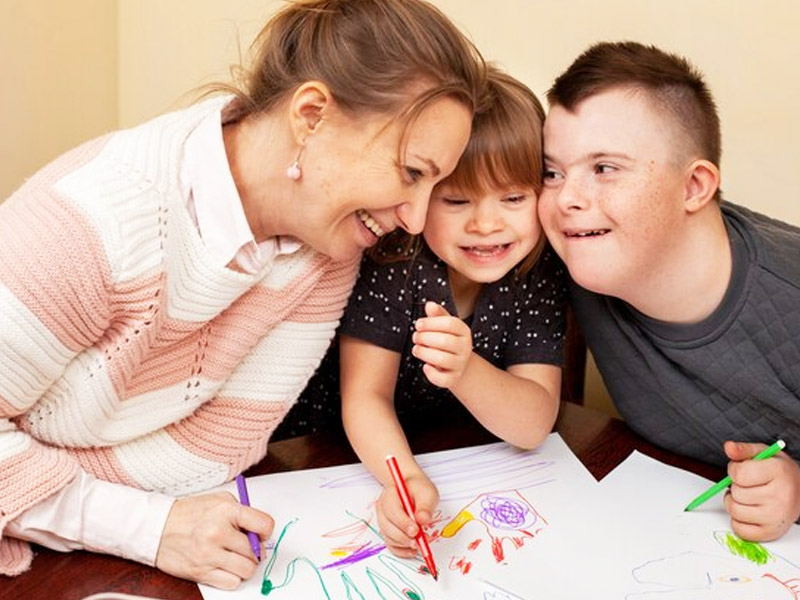Introduction
Down Syndrome in children is a genetic condition caused mainly by the presence of an extra chromosome, leading to developmental and intellectual delays. Understanding this condition helps parents and caregivers provide tailored care and support.
In an age where inclusivity is key, it’s vital for society to embrace these children and advocate for their acceptance. Our goal is to demystify Down Syndrome in children, offering valuable insights to support parents in making informed decisions. By reading this blog, you’ll gain a fresh perspective on parenting these wonderfully unique children.
Understanding Down Syndrome: Dispelling Myths and Unpacking Truths
Common myths about Down Syndrome in children often revolve around their learning and behavior. Let’s separate fact from fiction:
- Myth 1: Children with Down Syndrome are always happy.
- Truth: They experience a full range of emotions just like any child.
- Myth 2: They cannot learn.
- Truth: They can learn, thrive, and achieve goals with the right support.
Stereotypes persist, especially in countries like India. There’s a need to challenge these misconceptions and understand the true potential of Down Syndrome in children. Characteristics commonly seen include distinct facial features and varied growth patterns, yet each child is distinct, their abilities shaped by personality, interests, and support.
Equipping Parents with Practical Tips for Nurturing Children with Down Syndrome
Here’s how you can nurture your child:
- Health and Nutrition: Regular check-ups ensure optimum health. Focus on a balanced diet and exercise.
- Education: Explore specialized programs and adapt learning to your child’s pace and interest.
- Collaboration: Working with therapists and educators facilitates growth. Teamwork helps achieve developmental milestones.
By embracing these practices, parents can enhance their child’s quality of life, building confidence and capability through positive reinforcement. Collaborations can lead to a holistic development, reinforcing key skills while building a strong support system.
Advocacy in Education and Healthcare
In India, certain legal frameworks support disabled children:
- The Right to Education Act ensures access to school.
- Disability Rights Laws provide necessary services in healthcare and education.
Parents should advocate tirelessly for their child’s needs. This involves understanding one’s rights and demanding services that enhance Down Syndrome in children’s education and health experiences.
Interactive Activities: Strengthening Bonds and Supporting Developmental Milestones
Interactive activities play a crucial role:
- Sensory Games: Promote sensory development and motor skills through games like sandbox play.
- Creative Play: Art and music foster creativity and expression.
Moreover, ensuring time for family interaction fosters bond-building. Here’s how:
- Involve every family member in activities, ensuring inclusion for all siblings.
- Encourage open dialogue to maintain harmonious relationships.
These activities not only strengthen familial bonds but also facilitate developmental milestones in Down Syndrome in children.
Exploring Early Intervention and Therapies
Early intervention can significantly benefit Down Syndrome in children. Therapies include:
- Occupational Therapy: Enhances daily life skills.
- Speech Therapy: Strengthens communication abilities.
- Physical Therapy: Promotes motor skill development.
Begin therapies early for the best outcomes. Parents should connect with local and online resources, eager support communities exist within India for parents undertaking this path.
Conclusion and Empowerment for a More Inclusive Society
To wrap up, remember these key insights:
- Embrace each step in your child’s journey.
- Advocate for more accessible and inclusive environments.
- Enjoy the unique experiences Down Syndrome in children offer.
Parenting a child with Down Syndrome is rewarding. Celebrate their achievements, they bring joy and perspective, enriching lives with their view of the world.
Call to Action: Share and Participate
We encourage parents to share their stories, offering solidarity and learning. Join local advocacy groups, participate in raising awareness and supporting Down Syndrome in children within Indian society through these initiatives.
